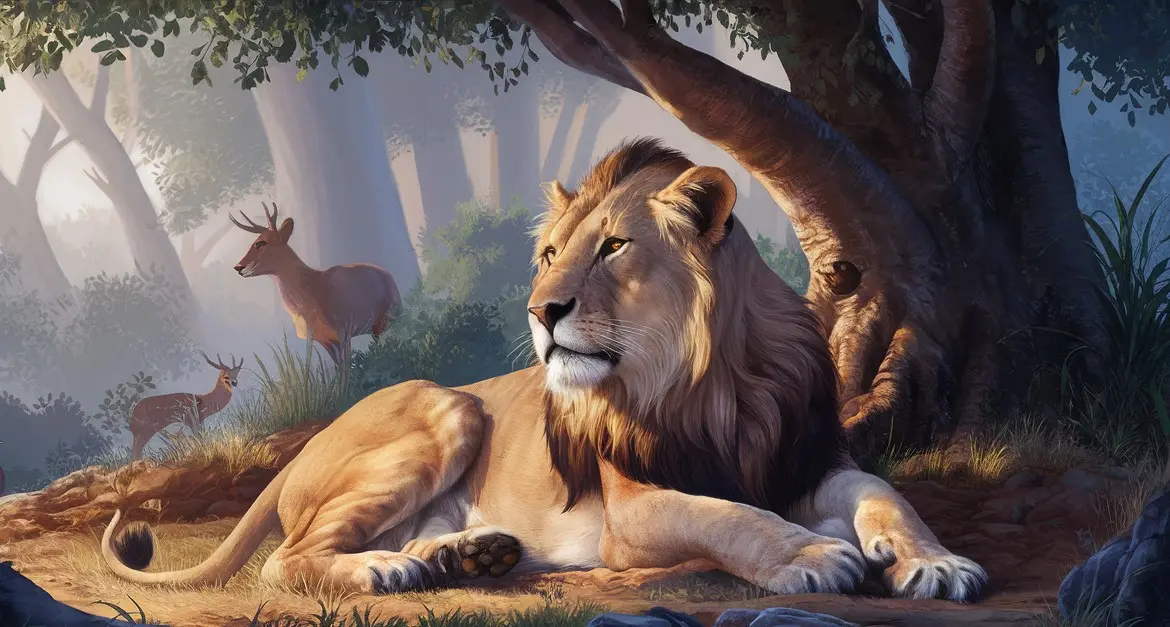World Lion Day 2024: A Tribute to the Asiatic Lion

World Lion Day 2024: Celebrating and Protecting the Asiatic Lion
Every year on August 10, India joins the global community in celebrating World Lion Day, a day dedicated to raising awareness about lion conservation and highlighting the challenges faced by these majestic creatures. While lions are revered worldwide, in India, this day holds special significance as the country is home to the rare and endangered Asiatic lion, a symbol of national pride and ecological importance.
The Asiatic lion, scientifically known as *Panthera leo persica*, is found exclusively in the Gir Forest of Gujarat. Unlike their African counterparts, Asiatic lions have a slightly smaller build and a distinct fold of skin along their belly, which sets them apart. Historically, these lions once roamed across the Middle East and parts of Asia, but due to hunting, habitat loss, and human conflict, their population has been reduced to a single isolated population in India.
India’s conservation efforts to protect the Asiatic lion have been a remarkable success story. At the turn of the 20th century, the population of these lions had dwindled to just a few dozen. However, through strict protection measures, habitat restoration, and community involvement, their numbers have gradually increased. As of the latest census, there are now over 670 Asiatic lions in the Gir Forest and surrounding areas.
This conservation success is a testament to the dedication of forest officials, local communities, and conservationists who have worked tirelessly to protect these lions from extinction. The Gir Forest has become a safe haven for the Asiatic lion, and efforts are now underway to explore potential relocation sites to ensure the long-term survival of the species.
Despite the progress made, challenges remain in ensuring the continued survival of the Asiatic lion. Habitat fragmentation, human-wildlife conflict, and the threat of disease outbreaks pose significant risks to the population. Additionally, the increasing human population and agricultural expansion around the Gir Forest have led to encroachment into lion habitats, exacerbating the risk of conflict.
On World Lion Day, there is a renewed focus on addressing these challenges through sustainable conservation strategies. This includes the development of corridors to connect fragmented habitats, community-based initiatives to mitigate human-lion conflict, and ongoing research to monitor lion health and behavior.
India’s commitment to lion conservation extends beyond its borders. The country actively participates in global efforts to raise awareness about the plight of lions and advocates for stronger international protection measures. By sharing its successful conservation strategies, India serves as a model for other countries facing similar challenges with their lion populations.
On this World Lion Day, Indians are encouraged to reflect on the importance of the Asiatic lion and the efforts required to protect it. Educational programs, wildlife documentaries, and awareness campaigns are organized across the country to inform the public about the significance of lion conservation. Schools, colleges, and wildlife organizations engage in activities that highlight the need to preserve this iconic species for future generations.
As India celebrates World Lion Day, it also reaffirms its commitment to protecting the Asiatic lion, ensuring that these majestic creatures continue to roam the forests of Gujarat, embodying the spirit of resilience and strength that has long been associated with the “King of the Jungle.
Also read: Heralding Growth in Assam: Key Welfare and Infrastructure Initiatives Launched




